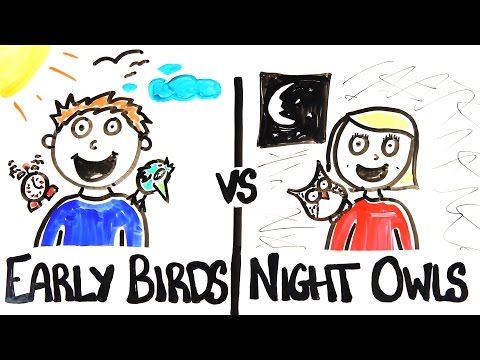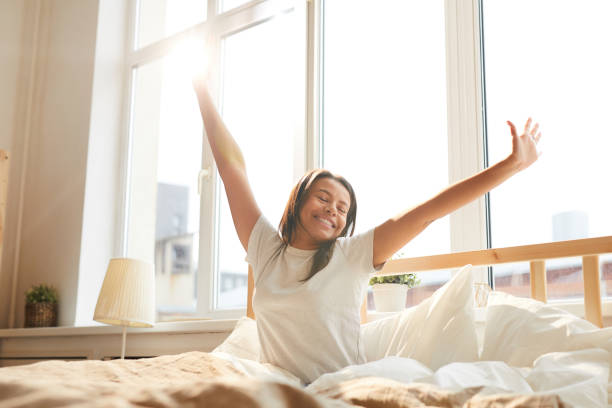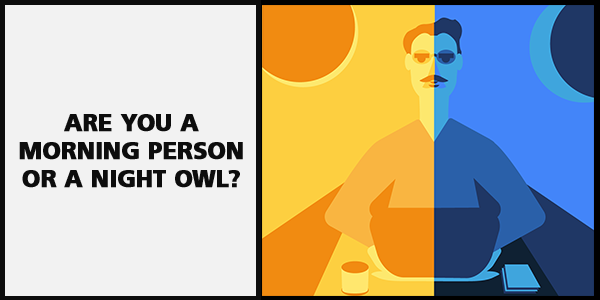We’re constantly bombarded with information about how much we should sleep for optimum health. Then there’s all the confusing advice around when we should sleep, when we should wake up, our sleeping conditions, and why sleep is so important.
The problem is, so much of this stuff is conflicting, and this can lead to stress in itself if you aren’t doing what is recommended in whatever you’re reading.
There’s also a lot of guilt around sleep. If we lay in we are lazy. If we go to bed early we are deemed boring. If you sleep fewer hours than someone else, you are asked if you are resting enough. In a strange way, the opinions everyone have around sleep can cause more anxiety than not getting the right amount.
According to a recent study by the Sleep Council the most popular bedtime for Brits is 10-11pm, although a fair amount of the population, (19%), go to bed after midnight.
Studies also show we have two sleepy points during the day. We naturally feel like sleeping just after lunch at 2pm, and again at 2am. The problem is, most people’s lifestyles don’t lend themselves to falling asleep at these times.
So are you a morning person or a night owl? Knowing the difference can help you work out when is best to get work done.

The difference between morning larks and night owls
You probably already know whether you are a morning lark, a night owl, or something in the middle due to when you feel most productive.
This preference is known scientifically as your chronotype and it has been proven to be partly controlled by genes. It might be a relief to know you can’t really help your sleep preferences – you’ll have to blame your parents.
While it’s important to remember that being a morning person does not mean you definitely have a specific personality or skillset, or your life will look a certain way, there are some broad differences we might draw between the two groups.
Morning people tend to be ‘get up and go’ types who feel proactive in the mornings, wide awake at an early hour, and prefer to be productive before lunchtime.
Night owls tend to stay awake long after darkness falls and are happy to keep working late into the night. This means mornings may be less of a desirable time for them, though often work constraints mean they have to face being awake at early hours.
Benefits of being a morning person
o what benefits might you reap if you prefer getting up early? Well getting up at an early alarm, is broadly associated with will power and over-achieving. Much has been written about the habits of successful people like Richard Branson and Mark Zuckerberg who apparently rise at 5am.
Another study found that morning people are more likely to be positive throughout the day and less likely to get distracted.
It’s important to note that being a morning person will not prevent depression and nor will being a night owl cause it, but one study indicates that having a later chronotype could be linked to depression.
One huge benefit of waking up early is that most other people won’t be up yet, meaning you can get lots of work done without distraction, therefore freeing up your time to be with loved ones or relax later on.

Why is it good to be a night owl?
Studies show you might have more mental stamina if you’re a night owl. Researchers at the University of Liege in Belgium recruited 16 morning people and 15 night owls and had them do two mental alertness tests. One was taken 1.5 hours after waking, and both groups performed equally well, and one was taken 10.5 hours after waking up, in which the night owl group performed 6% better.
You might be more creative if you’re a night owl, too. One study showed those who would rather stay up later are more likely to show creativity. It has to do with the fact that being up working or creating late goes against conventional habit, which encourages innovative thinking.

So should you try to switch?
Getting up early tends to be necessary for many of us because, generally, businesses like their employees to start around 9am.
Nonetheless, this doesn’t necessarily mean you should be aiming to get up at 4am every day because you have read that successful CEOs do so. In fact, many successful people, like Buzzfeed’s CEO Jonah Peretti and writer James Joyce, are famous late risers.
There is no evidence that waking up early or staying up late provides any benefit. It is much more about what people do during those times and how these actions go on to influence the rest of their day that counts.
It is all about causation. The reason there is some evidence to suggest night owls might be more likely to suffer from depression could be down to the fact their lifestyle forces them to be up early against the wishes of their bodies, therefore putting them in a low mood.
A recent study found that those who tried to turn themselves into larks because rising late is labelled as lazy gained no more life satisfaction from doing this.
If you do want to change your preference for lifestyle reasons, it is possible to gradually ease yourself into a new sleeping pattern.
If you want to wake up earlier than you currently do, you should also make the change slowly. There is no use suddenly deciding you want to start getting up at 6am when you usually get up at 8am. It will feel like too much of shock. Instead, begin by setting your alarm for 7:45am and get used to that, before then setting your alarm for 7:30am and so on.
The most important thing, whatever your routine, is to get enough sleep. Mortality rates are higher in those who sleep less than six hours on average every night than those who sleep seven hours or more. Adults who sleep less than 7 hours a day are 30% more likely to be obese.
People are naturally drawn to being asleep at certain times, and there is no need to tamper with this unless your lifestyle forces it.
